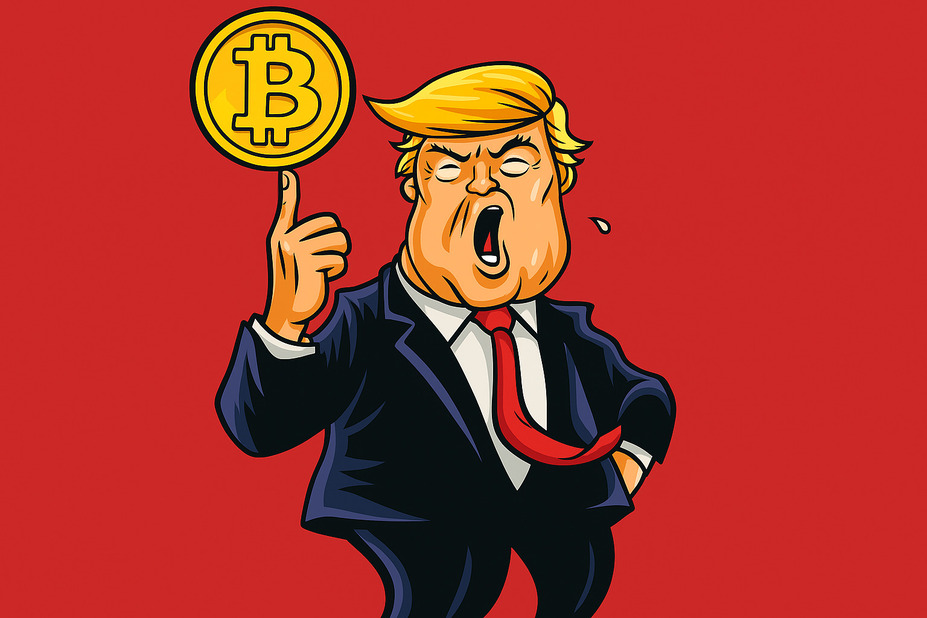Retirement revolution? Trump order opens door for crypto, real estate in 401(k)s

Donald Trump’s recent executive order aims to expand investment options in retirement accounts, but experts warn of potential risks associated with including volatile assets like cryptocurrency.
Donald Trump has signed an important order that could change the way people save money for retirement. This order says that people can now put money into cryptocurrency and other types of investment, like private equity and real estate, in their 401(k) retirement accounts.
This order could unlock huge amounts of money from Americans’ retirement savings for fund managers, creating a new way to fund alternative assets that are not traditional stocks, bonds, and cash. But some people are worried about taking too much risk with people’s retirement money. This could be very good for big companies that manage alternative assets because it would allow them to sell their investments in the $12 trillion market for defined contribution plans.
Trump’s executive order aligns with his administration’s increasing embrace of the cryptocurrency industry and aims to reduce regulations on digital currencies. Despite previously expressing skepticism about crypto, even calling Bitcoin “a scam,” Trump has recently launched his own cryptocurrency venture, actively courted crypto supporters, and pledged to make the U.S. the “crypto capital of the world.”
According to Trump, “Regulatory overreach and encouragement of lawsuits filed by opportunistic trial lawyers have stifled investment innovation. My Administration will relieve the regulatory burdens and litigation risk that impede American workers’ retirement accounts from achieving the competitive returns and asset diversification necessary to secure a dignified, comfortable retirement.”
However, some analysts are concerned about the inherent risks of including cryptocurrency in 401(k)s, pointing to the speculative nature of crypto and the prevalence of fraud in the industry.
According to Anil Khurana, executive director of Georgetown University’s Baratta Center for Global Business, “Opening up the $9 trillion 401(k) industry to alternative assets overall is reasonable, but if these assets and sectors are highly speculative and underregulated, it could be a big mistake.”
In addition to the 401(k) order, Trump issued a separate executive order targeting the alleged “debanking” of conservatives, echoing a long-standing right-wing claim that banks deny them services based on political beliefs. Silicon Valley investors have also been pushing for easing regulatory scrutiny of crypto assets.
The order directs the labor secretary to consult with her counterparts at the treasury department, the Securities and Exchange Commission, and other federal regulators to assess whether parallel regulatory changes should be made at those agencies.
The new investment options often involve lower disclosure requirements and are generally less liquid than publicly traded stocks and bonds, which most retirement funds rely on. Investing in them also tends to carry higher fees, and in the case of cryptocurrency, exposes retirees to a market known for its volatility.
In defined contribution plans, employees contribute to their own retirement accounts, often with matching contributions from their employers. While the invested funds belong to the employee, there is no guaranteed regular payout upon retirement, unlike a defined benefit pension plan.
Any changes resulting from Trump’s order are unlikely to happen quickly. Lawyers are preparing for potential lawsuits from investors who may not fully understand the complexity of the new investment options.
Despite the potential challenges, BlackRock, the world’s largest asset manager, is moving forward. They plan to launch a retirement fund that includes private equity and private credit assets next year. However, CEO Larry Fink acknowledged the potential litigation risks associated with the defined contribution business.
The Department of Labor issued guidance during Trump’s previous presidency on how such plans could invest in private equity funds within certain limits, but few took advantage, fearing litigation.
Proponents argue that younger savers could benefit from the potentially higher returns associated with riskier investments that gradually become more conservative as they approach retirement.
However, Democratic Senator Elizabeth Warren questioned how retirement savings invested in private investments could be safeguarded, given the sector’s weak investor protections, lack of transparency, expensive management fees, and unsubstantiated claims of high returns.












